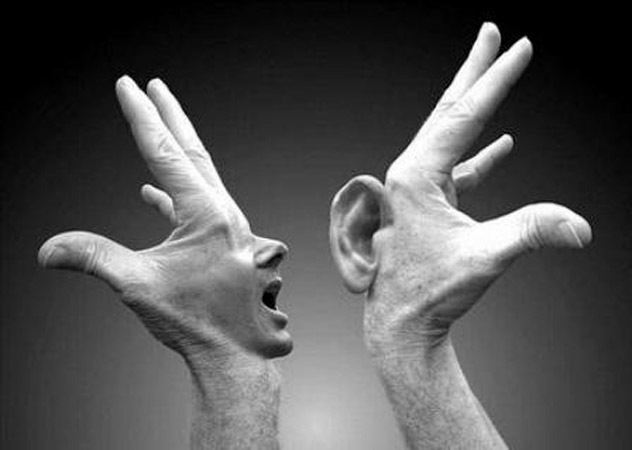Search
Democracy Links
Member's Off-site Blogs
the fear meme ...

How much fear do we want? Enough of it preserves our lives. Too much of it diminishes our lives. Currently, the balance is skewed by an overload of fear. Anxiety, its clinical name, is in epidemic proportions.
In favour of the measure to monitor social networks, it can be argued that it can significantly improve security agencies’ ability to deal with terrorist organizations. The claim is that intelligence agencies that monitor the networks, in many cases, can protect their territory from terrorist attacks. For instance, the Federal Bureau of Investigation (FBI), after keeping movement on extremist groups’ social networks under surveillance, has been able to arrest several terrorist suspects and allegedly disrupt their terrorist plots.
Yet how much fear do we want? Enough of it preserves our lives. Too much of it diminishes our lives. Currently, the balance is skewed by an overload of fear. Anxiety, its clinical name, is in epidemic proportions.
Employment is less secure. Computing and robotics shrink the number of jobs. Domestic violence, bullying and suicide make terrible the lives of many Australians. Progressive political leadership freezes in the face of conservative attack. Terrorist threats, unknown decades ago, require new organizations, structures, laws and restrictions. There is growing unease about inequality. And the media knows a scary story will sell.
Internationally, climate change threatens the global future. Defence spending, with surgical and large-scale killing capacity, increases daily. Several, formerly stable, countries have unstable leaders. Terrorism, which by definition terrifies, becomes an everyday experience.
Our fear of non-survival is so powerful that we can easily become unhinged or be manipulated by unscrupulous politicians. It is easy.
It goes like this. "We are being threatened by those evil people over there. These are extraordinary times. Trust me, do whatever I say and you will be safe, you will survive.’ ‘Sounds good what do we have to give you to protect us?’ Give me the extra powers I need and some of your freedoms. And I need access to your thinking and base fears.’"
So runs the contract, which operates at observable and obscured unconscious levels. It has a label: Fight-Flight.
"Our fear of non-survival is so powerful that we can easily become unhinged or be manipulated by unscrupulous politicians. It is easy."
Citizens need to believe that the force which threatens is evil, but we are good. Only the strong will survive, so the vulnerable and infirm will have to be sidelined. Opposition to, or questioning of, the leadership threatens governing authority and divides, whereas unity, even if superficial, is strength. There is not enough time to reflect, to consider, to value wisdom.
Beneficiaries are the arms manufacturers and suppliers of security. While other budgets are cut, the defence budget grows unquestioned. Alliances fostered with bully regimes, either across the Pacific or in the Middle East, make enemies for us and endanger us. As John Menadue argues: 'Terrorists are over here because we are over there.'
Our linkage with the unwinnable, but pariah-making, wars in Korea, Viet Nam, Iraq, Iran, Syria has been as silly as it is tragic. Australia had a Prime Minister who sent the Australian army into Iraq on a lie. This caused many of us to cringe with guilt about the civilian lives lost. We lament the shattered lives of ex-service men and women. It made Australia a force in the destabilization of the Middle East.
From this instability, and its resentment, grew the terrorist forces of Al Qaida, the Taliban and Daesh.
If there is nothing to be feared except fear itself maybe it is time to ask: "How much of it do we need or want? What does this threat distract us from? What would lessen the threat overburden? Since fear is irrational, what happens when we apply the light of reason to it?"
In three areas we lose quality of life while fear freezes our psyche. The first loss is the absence of an inspiring future vision, which would unite us and make us want to work and to live happily together. Such a vision would honour the original landowners - and we would ask them for inclusion.
That vision would be our goal. It would provide our motivating values and our unique potential for greatness. It would entail a way of emerging from our national dependent adolescence; we could become an adult interdependent nation. We could proudly increase the number of friendly nations, while reducing our number of confected enemies.
We could uphold fairness and decency by regulating the anti-social behaviours of politicians, bureaucrats, and global conglomerates. We could address the enemies within, who are often more dangerous, day to day, than those without. We could have better governance, rather than the best government money can buy.
Thirdly, we could realize that the true capital of our nation is in the hearts and minds of our people. We could foster the soul and spirit of our artists and innovators who are linked to the land on which we live. We could give priority to reflecting on our lives. Identifying what we are in favour of, which would transcend what we are against.
Healthy, realistic, inspiring hope would then counterbalance anxiety.
- By John Richardson at 7 Aug 2017 - 11:44pm
- John Richardson's blog
- Login or register to post comments
Recent comments
4 hours 17 min ago
4 hours 49 min ago
5 hours 46 min ago
5 hours 50 min ago
7 hours 34 min ago
7 hours 44 min ago
7 hours 49 min ago
7 hours 56 min ago
20 hours 10 min ago
1 day 38 min ago